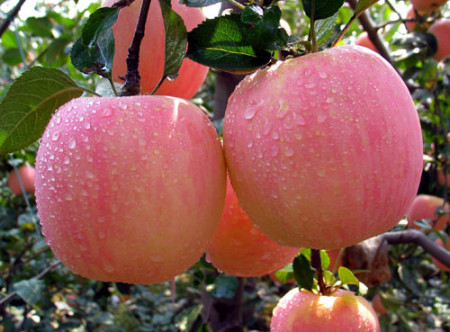发布时间: 2016年08月12日


Japanese farmers have utilized many hi-tech ways of growing fruits such as using air conditioners and automatic watering hoses in greenhouses that are monitored by computers。
The fruit farmers could also determine, through the machines, whether the fruits contain viruses, pests or are immune。
However, Japanese consumers are still very cautious when shopping for vegetables and fruits。
The Yahoo! Japan website reported Monday that with an effort to prohibit apples with excessive pesticide from entering the market, due to health risks, the Ministry of Agriculture, Forestry and Fisheries of Japan issued an order calling for a numbering system。
It will require growers of well-known Japanese Fuji apples to use certain numbers on their apples that are traceable。
In accordance with this stipulation, Japanese fruit growers must first classify their apples and then send them to the Japanese Agricultural Association for tests, where every fruit grower's apples will be numbered and checked for pesticide。
After all these processes, the apples will be able to enter the market。
In the event a quality problem arises from the apples after they're bought, growers could also be held responsible。
日本农户栽培果树已经使用了许多高科技手段,比如,大棚里一般都有空调、自动浇水装置,并采用电脑控制。果农还会用机器检测水果是否含有病毒、虫害。但日本消费者购买蔬菜水果时仍小心翼翼。
据日本雅虎网站15日报道,为了彻底杜绝农药超标的苹果流向超市威胁消费者健康,日本农林水产省下令对日本著名的“富士”苹果进行编号,保证每个苹果都能查到主人。即每逢收获季节,日本果农必须先将自己采摘的苹果分类后交到日本农业协会进行检测。农业协会要对每户的苹果编号备查,然后进行严格的农药残留检测,之后方可上市。一旦售出后出现质量问题,就让果农“对号入座”,承担应有的处罚。
编辑推荐: